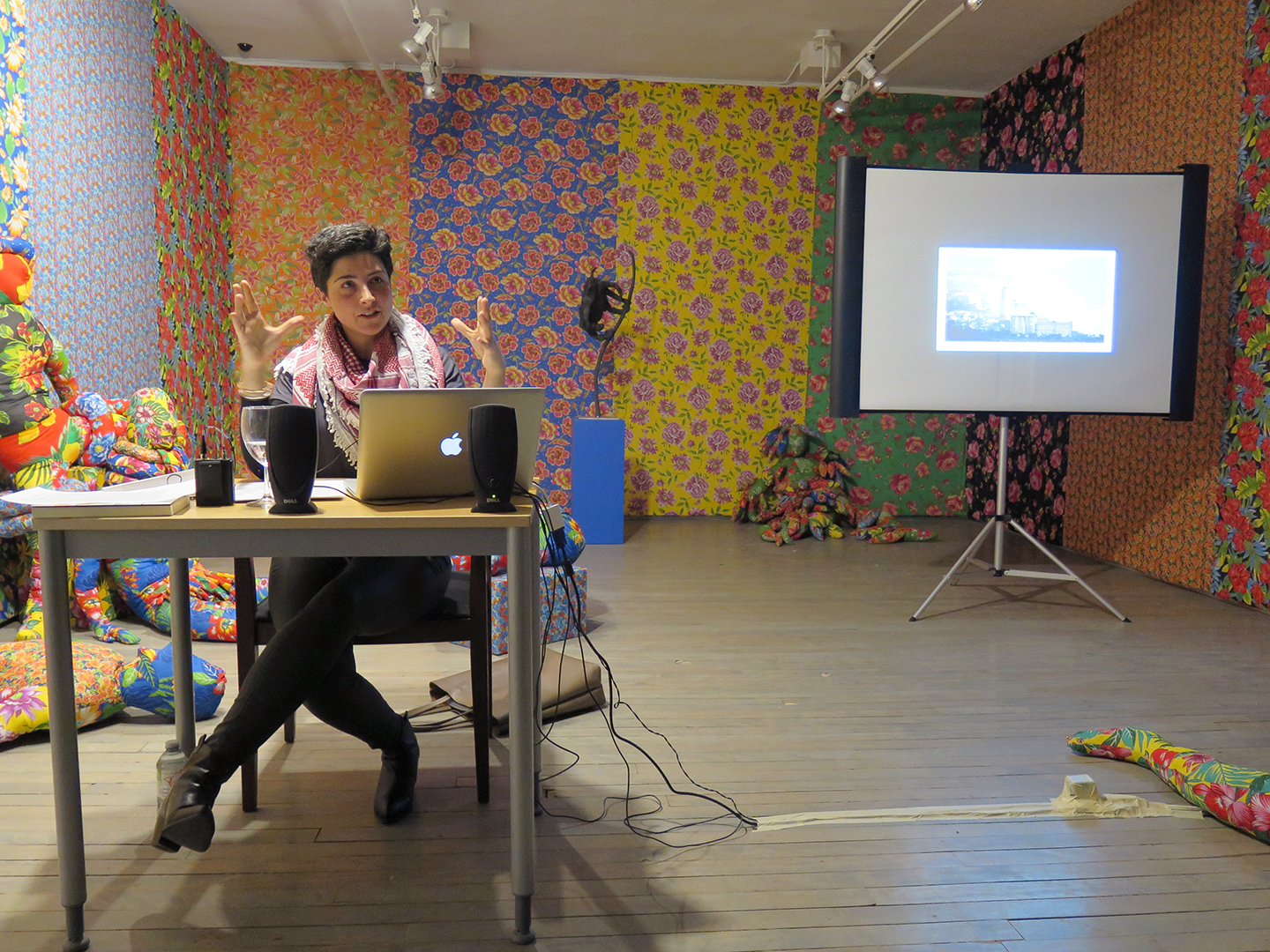For her research residency at OBORO, Irmgard Emmelhainz will make use of historical, conceptual and empirical tools to draw comparisons between current theories and practices of decolonization in Mexico and in Quebec from a First Nations perspective, positing alternatives to the Western logic of progress-driven extractive capitalism.
Emmelhainz suggests that what is at stake in contemporary politics is life itself. The need thus arises to find ways of self-organizing collective life against neoliberal forms of social engineering. She posits that a key tool for contemporary politics resides in indigenous cosmologies, for instance, the notion of “comunalidad”, which emerged in the 1980s in Oaxaca to describe communal being and traditional ways of organizing which attempt to counter capitalism in favour of an ethical reconstruction of peoples.
This implies new forms of inhabiting territories from the other side of modernity, which Emmelhainz proposes to compare to the concepts and practices of indigenous peoples in Quebec. For the curator, once the centuries of exclusion and violence they have undergone have been acknowledged, we can try to learn from them how to live in the world differently.
She writes: “The independence movement in Quebec has problematically analogized its status as a minority in Canada with the oppressed and neglected status of the First Nations peoples. For my research, I am interested in drawing upon aspects of the First Nations’ struggles with decolonization as alternatives to Western notions of progress and modernity. Indigenous cultural baggage thus becomes more than a tool for political struggle and identification, but rather a cosmology where different forms of living and organizing can exist, beyond the modern anthropocentric conception of the world.”
This project is supported by the Montreal Arts Council in collaboration with Laboratorio Arte Alameda in Mexico City, as well as SBC Contemporary Art in Montreal.
- -
During her residency, Irmgard Emmelhainz will also act as a co-curator at SBC Contemporary Art:
Does the oyster sleep?
Sophie Bissonnette / Martin Duckworth / Joyce Rock • Maja Borg • Marguerite Duras • Sara Eliassen • Silvia Gruner • Waël Noureddine
Curated by Pip Day and Irmgard Emmelhainz
April 30 - July 9, 2016
Does the oyster sleep? probes the role of Eros in politics. If Eros tears the subject away from itself, taking it outside, toward the other, it enables the potential for an opening up toward the other of Modernity. While politics is perhaps antagonistic to love – in its conflict between common interest and individual desire – political action has a realm that indisputably communicates with Eros. Political action in relationship to Eros could be understood as a common desire to live differently in a world that would be more equal, with different relationships between humans, land and property. Does the oyster sleep? takes its title from Clarice Lispector's Água Viva, also the source for SBC's current Focus Program.




